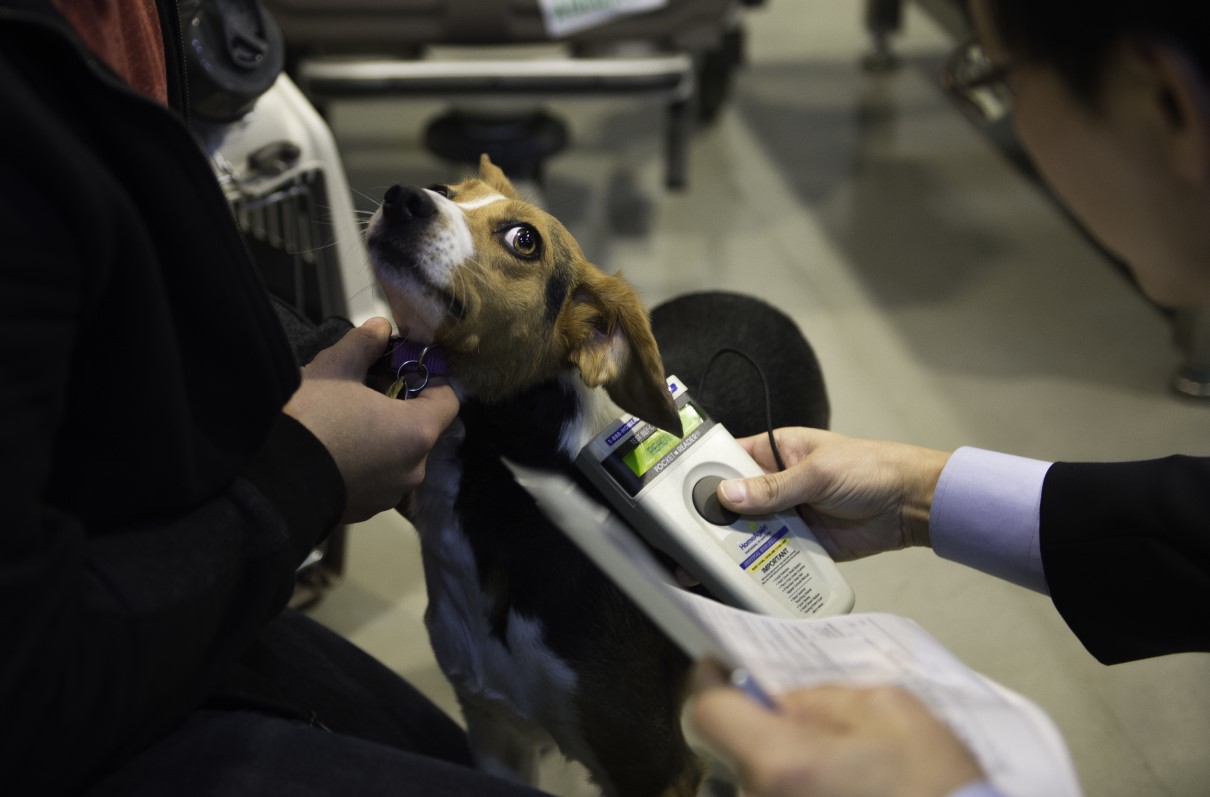Editor’s note: This article by Thomas Novelly originally appeared on Military.com, a leading source of news for the military and veteran community.
The Air Force is reviewing its policies for transporting service members' pets across the globe after four animals have died this summer during flights.
Three pets have died recently as troops and their families were traveling on Patriot Express, a commercial charter carrier contracted by the Defense Department, while moving overseas.
In a public letter, Gen. Mike Minihan, head of Air Mobility Command, said the deaths were "unacceptable" and promised changes.
"As a pet owner with five overseas tours, I'm intimately aware of the risk, expense, and extreme concern when it comes to these important members of our families," Minihan wrote in a July 15 letter. "AMC is reviewing every aspect of Patriot Express pet travel, including equities beyond our responsibility, to further strengthen pet safety."
Patriot Express, which is managed by Air Mobility Command, is a flight option for service members who receive permanent change of station, or PCS, orders and must uproot their lives to move around the world for their military careers. It is a free or relatively low-cost option compared to commercial airlines and allows for more flexibility than major airlines when it comes to traveling with pets.
[RELATED: Major Jewelry Retailer to Pay Millions for Duping Servicemembers and Families]
While many airlines have breed and size restrictions for in-cabin travel, Patriot Express offers more options. But the recent pet deaths have caused concerns for service members and animal advocates.
Air Mobility Command has transported nearly 46,000 pets for service members since 2017, with 16 dying during that time, the Air Force said in a statement. The service said 14 were snub-nosed breed dogs, which are more susceptible to long-term breathing problems and can't cool down as quickly in hot environments, according to the American Kennel Club.
"Besides the heat and stress of air travel, there have been commonalities amongst some of the recent fatalities that you need to be aware of now," Mininhan wrote in a letter to military families. "Pet health, age, breed, and sedation appear to be factors."
A french bulldog died in its travel crate July 14 at the Kadena Air Base terminal in Okinawa, according to Stars & Stripes. On July 1, a 10-year-old Pomeranian mix named Kolbie owned by a Marine Corps family died from heatstroke during a Patriot Express flight in Japan.
A July 14 statement and Minihan's July 15 letter both mention an additional pet death in July and also acknowledge that a dog had died “earlier this summer traveling from Andersen AFB to Alaska" -- bringing the total to four animal deaths this summer.
[RELATED: Study: Commissaries Claim Inflated Savings]
Leave No Paws Behind USA, a nonprofit that helps military families with the costs and logistics of transporting their pets when assigned to a new duty station, was outraged by the deaths and called for immediate reforms.
"Pets aren't on the military's radar the way [they] should be," Leave No Paws Behind posted on Facebook. "The family pet is PART of our military family. There needs to be accountability, the policy needs to change!"
Minihan wrote in his letter that Air Mobility Command made some immediate changes, such as allowing owners to access their pets during layovers; permitting animals in climate-controlled terminals while being loaded onto planes; and cooling cargo loads while loading and unloading flights.
Honest Paws, a cannabinoid oil company that makes products for pets, last year released a study citing U.S. Department of Transportation data that showed 250 animals died either before or during commercial flights between 2010 and 2020.
After several headlines about pet deaths on planes, commercial airlines have instituted a wide array of rules and regulations for traveling with animals, ranging from breed and weight restrictions to limiting the number of animals allowed per passenger.
Minihan said the easiest solution would be for Patriot Express to follow those commercial flight policies, but it would cause a major inconvenience for service members trying to relocate with their pets.
"The easy thing to do during these challenging times is to immediately align AMC pet travel policies with airline industry standards, which would severely restrict and, in substantial numbers, eliminate travel for specific breeds, health conditions and climate environments," Minihan wrote. "Doing so would leave thousands of military pet owners with expensive and limited-to-no travel options."
Leave No Paws Behind USA said in another Facebook post that Air Mobility Command is "doing absolutely everything to change and update policies to prevent further deaths."
Support Military Spouses
Donate to The MOAA Foundation and support MOAA’s efforts to help military spouses in their career journeys.
